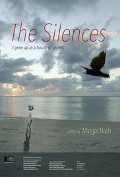
Directed by
Margot Nash
73 minutes
Rated M
Reviewed by
Bernard Hemingway

Silences, The
Synopsis: An autobigraphical filmic essay about family secrets and the ties between a mother and daughter by film-maker Margot Nash.
Margot Nash’s film works as both personal and social history. A child of the post-war generation, the portrait she paints of growing up in middle-class New Zealand and later Australia in the 1950s and 60s is one that many viewers will readily empathize with although her story is more fraught than most.
Nash, who came of age in the late 60s, was a typical teen of the time rebelling against the repressive ideology of the era which her mother exemplified. Her film is an attempt to recover the reality of those years undistorted by her upbringing and to reconcile herself to her memories of her recently-deceased mother, of whom, almost needless to say, she is in a good part the legacy. Nash’s ambivalent pronunciation of “piano” in her voice-over, sometimes sounding “pee-ah-no” sometimes “pee-an-no” embodies the ongoing conflict in her psyche between her conscious self and the ego ideal implanted by her aspirational, Nash at times seems inclined to say, pretentious, mother.
Unlike Sophia Turkiewicz’s comparable 2013 documentary Once My Mother, Nash’s approach is more analytical and literary, her narrative occasionally interrupted by inter-titles citing authors such as Marguerite Duras and Margaret Attwood. The result is less immediately emotionally engaging, even, one feels, and ironically so, almost painfully controlled. At the end of the day Nash’s film is more about herself than her mother who is always kept at arm’s length by the director’s studied narration, her mother’s voice only heard in a few audio recordings. Even Nash’s living sister, Diana, who clearly has a different perception of their mother, is effectively marginalized with Nash obsessively pursuing her own truth, one which she has already explored in fictional form in her 1994 film, Vacant Possession and from which she usefully quotes periodically.
For all her caution, Nash’s story is however one worth attending to. Her father suffered from what we would today call bi-polar disease and her eldest sister was institutionalized because of mental retardation produced by tubercular meningitis. The account she gives of these two harrowing incidents, along with her family history, deftly crafted by a combination of old photographs and her mother’s spoken words, is a revealing portrait of the times.
In a way it is a pity that Nash does not scrutinize herself the way she does her mother. The Silences opens with the question of what to do with her mother’s ashes and closes with a ritual memorializing of them together with Nash’s father and elder sister in the grounds of the family holiday home. Her film is in many ways an analog in the realm of memory to that journey.

Want more about this film?


Want something different?




